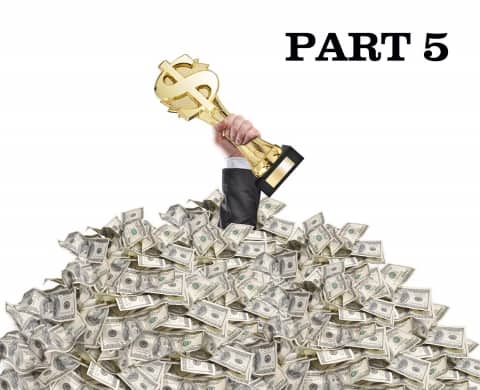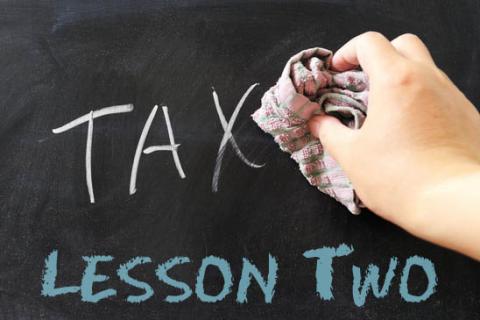In my previous article on this evergreen topic of debate for advisors and investors, we’ve analyzed all U.S. Large Cap Blend, Growth and Value mutual funds, along with the most recent – Who Wins the ‘Passive vs. Active’ Institutional Debate? Part 4: US Mid-, Small-Cap Blends — to see who wins the passive versus active debate. (See all the articles in …
Who Wins the ‘Passive vs. Active’ Institutional Debate? Part 4: US Mid-Small-Cap Blends
In my first three articles, we hit on the broad U.S. Large-Cap arena—Blend, Growth and Value. All three provided some interesting findings on the hugely debated subject matter relative to the institutional investment space. In this article, we’re going to round out the U.S. core equity investing space by analyzing both the Mid-Cap Blend and Small-Cap Blend. Again—keep in mind, …
Who Wins ‘Passive vs. Active’ Institutional Debate? Pt. 3: U.S. Large Cap Growth
My last two articles (Who Wins ‘Passive vs. Active’ Institutional Debate? Pt. 1: U.S. Large Cap Blend, and Who Wins ‘Passive vs. Active’ Institutional Debate? Pt. 2: U.S. Large Cap Growth) hit on two of the three asset classes in the U.S. large cap arena – blend and growth.
Who Wins ‘Passive vs. Active’ Institutional Debate? Pt. 2: U.S. Large Cap Growth
I hope everyone enjoyed my first article in the series—Who Wins ‘Passive vs. Active’ Institutional Debate? Pt. 1: U.S. Large Cap Blend—on this highly debated subject matter. However, before we dive into the Large Cap Growth space analysis, let me respond to a few comments relative to my first article. These articles are derived from a simple database screening, with …
Who Wins ‘Passive vs. Active’ Institutional Debate? Pt. 1: U.S. Large Cap Blend
Advisors and investors alike hear all the time in various articles, speeches and interviews that passive investment funds (indexes) always outperform active investment funds (non-indexes). In my view, however, I’ve found that most articles written on the subject rarely provide precise “apples to apples” comparisons, much less an all-institutional dialogue about true data. Therefore, through a series of articles, my …
The Real Value of an Advisor: ‘Risk’ and ‘Managing’
Check out Andy’s post from ThinkAdvisor regarding the “VALUE” of an Advisor… Find out what “the silver bullet”, “Vegas”, “winning big” and “having your cake and eating it too” might have to do with the actual VALUE of an advisor…
Help Your Clients Avoid Paying Taxes They Don’t Really Owe
While the federal government probably doesn’t collect all lawfully owed tax dollars due to its own inability to fully validate every taxpayer’s claimed write-offs, it also collects a lot of tax revenue to which it’s legally/factually not entitled. I know what you’re thinking; how does the IRS actually collect and retain tax revenue that isn’t actually owed? The answer is …
The Four Traits of “The Perfect Advisor”
All investors are looking for the “Perfect Advisor”, but for some reason, many never find them. And It’s no wonder, if even some of what I’ve heard investors want in their “perfect advisor” is true! Allow me to elaborate. To these investors, the perfect advisor is: 1) Smart: They expect their perfect advisor to be highly educated, have years of …
Are You a Crummey Advisor or Just a Crummy Advisor?
Crummy is defined as dirty, run-down, tacky, worthless or just plain lousy. On the other hand, if you’re a “Crummey” advisor, that’s a good thing – especially if you’re making “Crummey” recommendations to your high-net-worth (HNW) clients. Let me explain what I mean about making “Crummey” recommendations. A “Crummey Trust” is used when a parent wants to make lifetime gifts …
2 Tax-Efficient Savings Strategies for Right Now: Tax Season Lesson, Pt. 2
Because every client’s needs are unique, a canned approach to tax-efficient savings of Roth IRAs, traditional IRAs, 401(k), 403(b), NQ annuities, NQ accounts, etc., is not necessarily the most flexible or tax efficient option for every client. As advisors, we know that the words “tax-free” don’t always mean there’s no tax ever paid, just like the term “pre-tax” doesn’t mean …











